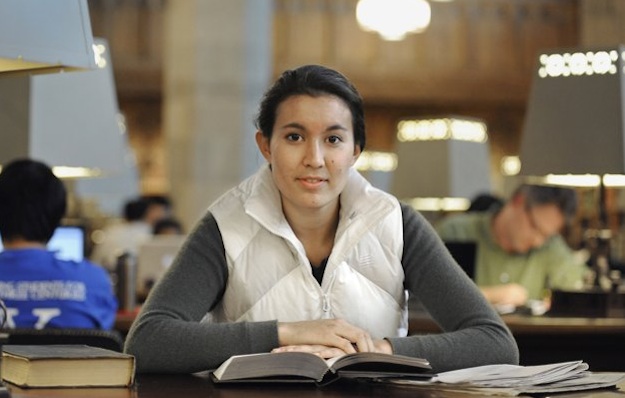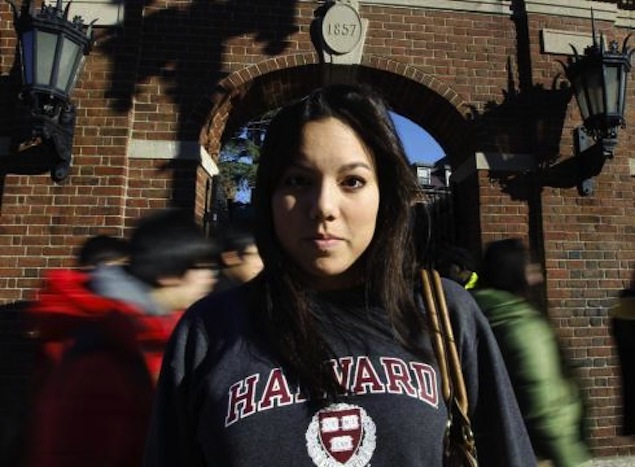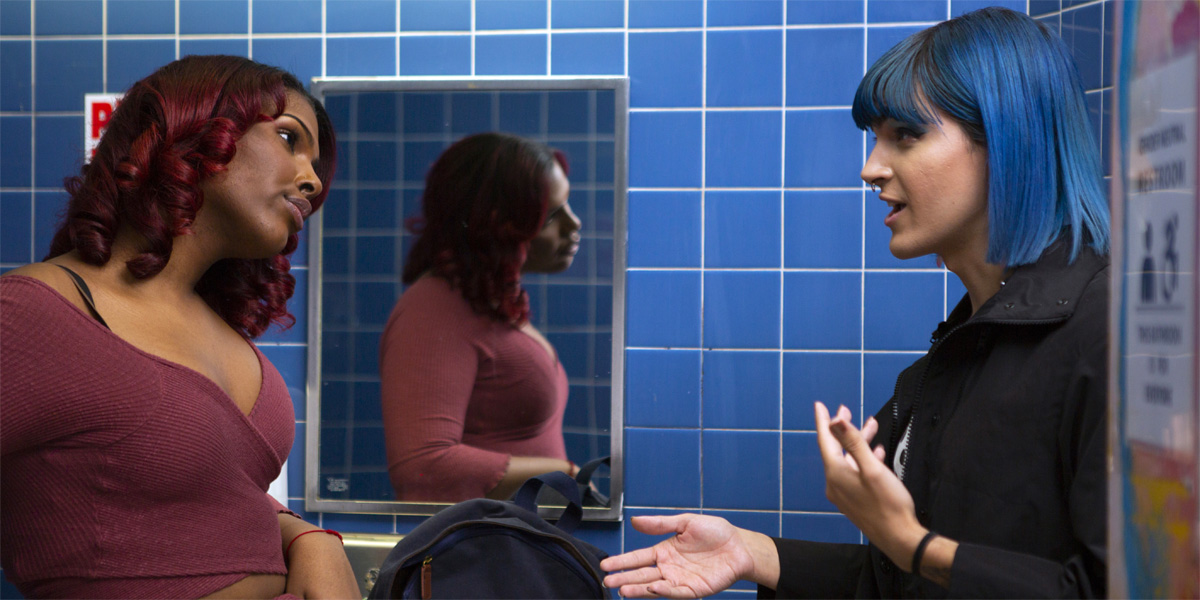Are you Asian/American? Want an edge in those ever-competitive college admissions? Then check “white” or don’t even respond to the race question on your college applications. Jesse Washington’s AP article published in USA Today finds that Asian/American students, particularly those who are half-Asian with racially ambiguous last names, are trying to avoid identifying themselves as Asian in admissions questionnaires — it seems the label “Asian” comes with an unfair disadvantage in the college application process.
Washington’s article mentions three particularly worrisome things about Asian/Americans and college admissions:
1. Asian/Americans need test scores that are several hundred points higher than applicants of other race and ethnic groups in order “to have an equal chance of admission.”
2. Colleges with race-blind admissions “have double the Asian percentage of Ivy League schools” and “critics say … this prove(s) the existence of discrimination.”
3. The discrimination might happen because of Asian/Americans being “evaluated not as individuals but against the thousands of other ultra-achieving Asians who are stereotyped as boring academic robots.”
In other words, race is something that Asian/American students feel they have to hide in order to get a better chance at college admissions — and being of color is a bad thing. So what’s going on here? Why are universities sometimes “charitable” toward racial minorities (“Oh, we’ll admit more of them because they’re disadvantaged”), and sometimes threatened by growing populations of nonwhite students? Where’s the line between charity case and threat?

I’ve often felt uncomfortable identifying my race on questionnaires — for me, marking off a race box comes with more implications than an X next to “Asian.” While identifying myself as Asian/American might help institutions know the demographics of their applicants, my race still carries with it a set of assumptions— that, for instance, my math scores will be astronomically high (note: they weren’t) and my science scores will be absurdly off the charts (note: they weren’t, either). I had a good SAT score, but it wasn’t jaw-droppingly high. I majored in English, Film and Art History in college. I was an Arts Editor for the daily newspaper. I am liberal artsy to the nth degree.
And the fact is, when people see “Asian” on an application, they expect to see a stereotype: a test-loving, science and math whiz who plays violin (note: I’ve never played an orchestra instrument in my life either). And when I am compared to the standard of this math-and-science-loving, “ultra-achieving … boring academic robot” that Washington writes about, I fail — I don’t excel in the ways that Asian/American students are expected to excel. And with our college admissions system comparing Asian/Americans to one another (and to a math-and-science-y high-achieving stereotype) rather than considering Asian/Americans as individuals, are colleges missing out on Asian/American students who are creative instead of number crunchers? What about Asian/American students who are intelligent in a way that isn’t measured by SAT scores?

At the heart of this issue is the concept of the “model minority” — the belief that Asian/Americans are all successful, “well to do,” and unaffected by socioeconomic, social, and cultural discrimination on the basis of race. The “model minority” badge is supposed to be a source of pride for minority groups (hint: it isn’t), even as it’s being used to justify the exclusion of Asian/Americans from programs designed to help disadvantaged minorities, including Affirmative Action and diversity policies. The standard for “diversity” at colleges is then oddly inconsistent — and the differing eligibility standards for different racial minorities tell us a lot about whose upward mobility is perceived as threatening and whose isn’t.
How has race become something individuals have to hide in order to get equal or better treatment in the college admissions process? It seems like we’ve taken several hundred steps back here. Race has become a negative marker for racial and academic profiling, and used to keep students out of schools not because of merit but because of race. Is it really fair to present students with the choice of denying part of their heritage for the sake of a better chance of admission? And is the college selection process fair to Asian/American students who do not fit into the stereotypical Asian norm for academics? One thing seems clear; in a time when even with college degrees, jobs are impossible to find, denying students access to higher education based on their race or ethnicity is a failure of the system.







